A popular post of a while back related to us poor cheapskate consultants not accepting to do work for free. I got a lot of feedback on that post, all of it positive and supportive. This time, I want to refer to a different challenge, as while some of the symptoms generally show up in the same form, this is rather different.
Let's start with a case in point. I recently received the following email - representative of several of those I receive on an every increasingly frequent basis.
Dear Ms. Cohen,
We are undertaking a review of our most material corporate responsibility (CR) issues and would greatly appreciate benefiting from your expertise and perspectives.
XXXXXXX has commissioned sustainability consultancy XXXXXXXXX to undertake half hour telephone interviews and facilitate the materiality analysis. The Interviews will be between XXXXXX 10th and XXXXXX 28th.
The topics covered in the interview are:
• What do you consider to be the most important CR issues relevant to XXXXXX?
• Which areas do you see as current XXXXXXXX strengths and weaknesses related to CR?
• Do you have any expectations or suggestions for XXXXXX future CR focus?
In appreciation of your participation, we will make a $100 donation in your honor to XXXXXXXX, which helps to reforest communities devastated by natural disasters.
Please let me know by this XXXXX 7th if you are interested in participating and we will follow up to schedule a 30 minute phone call at your convenience.
And this was my response (to which I have received no reply:)):
Many thanks for your invitation.
I believe XXXXXXXX has shown significant leadership in sustainability matters and in general, I have a high level of admiration for your work.
However, I will respectfully decline to participate in your stakeholder interview session.
As a consultant in the sustainability and CR space, I assume you approach me for my professional opinion, rather than just any person who might use XXXXXXX services.
The issues I could mention "off the cuff" from my general knowledge of the sector are probably fairly obvious and similar to those which other stakeholders will raise and therefore wouldn't add much value.
Therefore, providing a professional response would require specific research and preparation on my part for which I charge a fee.
If you are interested in a professional consultation, I could provide you an offer for such services.
However, I do not feel I can meaningfully contribute in a 30 minute conversation without proper preparation.
Thanks for your understanding and good luck with your process
Now, the point there is not that I am being asked, again, to give professional opinion for free, but the way in which companies are going about obtaining input for their materiality processes. These bulk approaches to anyone and everyone are anything but focused and designed to deliver a result which, in my view, will be of rather limited relevance to the companies involved.
I call this the commmoditization of materiality feedback. Instead of being knowledgeable, focused, relevant, and driven by both a level of expertise in the subject matter and a knowledge of the company in question, and also some basis of relationship with the company involved as an interested stakeholder of the company, materiality input is becoming broad-scale, technical, hit-and-miss and reminiscent of the days when we all ticked boxes in order to demonstrate sustainability progress. Ticking the materiality feedback box is apparently the activity du jour. Cast your net wide and you catch some fish, but let's not forget, all fish were not created equal.
In the case of the above company, I would barely call myself a stakeholder, beyond the fact that, as a citizen of the world, I am a stakeholder of every company in the world that has an impact on anything in the world. But that's taking the concept of stakeholder to unmanageable proportions.
GRI defines stakeholder as (my highlights):
GRI defines stakeholder as (my highlights):
"Stakeholders are defined as entities or individuals that can reasonably be expected to be significantly affected by the organization’s activities, products, and services; and whose actions can reasonably be expected to affect the ability of the organization to successfully implement its strategies and achieve its objectives. This includes entities or individuals whose rights under law or international conventions provide them with legitimate claims vis-à-vis the organization. Stakeholders can include those who are invested in the organization (such as employees, shareholders, suppliers) as well as those who have other relationships to the organization (such as vulnerable groups within local communities, civil
society)."
As a consultant and critic of reporting, I may refer to this company's report on the CSR Reporting Blog or other reviews I publish. But I still don't think this meets the definition of stakeholder as it's doubtful that my writings can reasonably be deemed to affect the organization etc.
I suspect we will be seeing many more companies attempt to engage us all in their new we-have-seen-the-light materiality investigations. This is a good thing. Materiality is becoming part of the new sustainability awareness of corporations. Companies are wanting to get focused. That's fabulous. But moving in a new direction requires a new mode of transport. Trying to get to a different place using the same behaviors that landed you here ain't gonna cut it. You just end up in another wrong place.
The objective of the stakeholder material engagement process is not to reach out to as many voices as possible. The objective is to reach out to the voices that count. Voices count because they belong to meaningful stakeholders, who have some form of relationship with the company, or who are leading external expert voices in matters relating to a company's sector and have, or can develop, enough specific knowledge to provide focused and useful input. In my view, it is far better to have conversations with a few relevant people that engage at a deeper level than to consult the masses and get input which is so broad and varied that it is of no use in making decisions. With great respect for James Suroweicki whose book I tremendously enjoyed, I fear that stakeholder engagement is not a case for the "wisdom of crowds". It's a case for widsom. Period.
In this sense, company XXXXX above was moving in the right direction - by asking to have a telephone conversation rather than send me a SurveyMonkey link. However, in selecting me, a stranger to their company and one who is not known for expertise in their industry sector, it indicates to me that the approach to materiality analysis is off track. It's like me asking a train driver if she thinks I should buy a new refrigerator. The train driver might have an opinion but well, unless she is a former refrigerator saleswoman, is her input really of so much value? (PS. I don't need a new refrigerator at present, but if anyone has any suggestions just in case .... )
The new drive for focused materiality is causing companies to rethink the way they develop sustainability strategy and report on performance. I am genuinely seeing companies wanting to change and leading processes to help them define material issues. It is happening. It's actually really encouraging. It's also engendering a phase of materiality experimentation. That's also good. Many roads lead to materiality, as someone wise once said. I think.
But let's not ignore the dangers. Tickboxing is a bad habit in terms of sustainability. Whether this is tickboxing a number of stakeholders we interviewed or sent a questionnaire to, or tickboxing a list of material issues that appears in a SASB standard or in the newly-published 10 GRI G4 Sector Disclosures without having done the analysis and engagement work, it's bad. Stakeholder engagement and dialog is not something you can commoditize. It always has to be targeted, relevant, meaningful and supportive of processes which have decisions at the end of them.
A respected colleague-consultant, Dwayne Baraka, recently published a guide to materiality, and it might be relevant for the companies that are currently grappling with defining or validating materiality ... including XXXXXXXXXX ... to read it.
In the meantime, anyone who has invented a questionnaire-fatigue antidote stands to make millions over the next few years.
As a consultant and critic of reporting, I may refer to this company's report on the CSR Reporting Blog or other reviews I publish. But I still don't think this meets the definition of stakeholder as it's doubtful that my writings can reasonably be deemed to affect the organization etc.
I suspect we will be seeing many more companies attempt to engage us all in their new we-have-seen-the-light materiality investigations. This is a good thing. Materiality is becoming part of the new sustainability awareness of corporations. Companies are wanting to get focused. That's fabulous. But moving in a new direction requires a new mode of transport. Trying to get to a different place using the same behaviors that landed you here ain't gonna cut it. You just end up in another wrong place.
The objective of the stakeholder material engagement process is not to reach out to as many voices as possible. The objective is to reach out to the voices that count. Voices count because they belong to meaningful stakeholders, who have some form of relationship with the company, or who are leading external expert voices in matters relating to a company's sector and have, or can develop, enough specific knowledge to provide focused and useful input. In my view, it is far better to have conversations with a few relevant people that engage at a deeper level than to consult the masses and get input which is so broad and varied that it is of no use in making decisions. With great respect for James Suroweicki whose book I tremendously enjoyed, I fear that stakeholder engagement is not a case for the "wisdom of crowds". It's a case for widsom. Period.
In this sense, company XXXXX above was moving in the right direction - by asking to have a telephone conversation rather than send me a SurveyMonkey link. However, in selecting me, a stranger to their company and one who is not known for expertise in their industry sector, it indicates to me that the approach to materiality analysis is off track. It's like me asking a train driver if she thinks I should buy a new refrigerator. The train driver might have an opinion but well, unless she is a former refrigerator saleswoman, is her input really of so much value? (PS. I don't need a new refrigerator at present, but if anyone has any suggestions just in case .... )
The new drive for focused materiality is causing companies to rethink the way they develop sustainability strategy and report on performance. I am genuinely seeing companies wanting to change and leading processes to help them define material issues. It is happening. It's actually really encouraging. It's also engendering a phase of materiality experimentation. That's also good. Many roads lead to materiality, as someone wise once said. I think.
But let's not ignore the dangers. Tickboxing is a bad habit in terms of sustainability. Whether this is tickboxing a number of stakeholders we interviewed or sent a questionnaire to, or tickboxing a list of material issues that appears in a SASB standard or in the newly-published 10 GRI G4 Sector Disclosures without having done the analysis and engagement work, it's bad. Stakeholder engagement and dialog is not something you can commoditize. It always has to be targeted, relevant, meaningful and supportive of processes which have decisions at the end of them.
A respected colleague-consultant, Dwayne Baraka, recently published a guide to materiality, and it might be relevant for the companies that are currently grappling with defining or validating materiality ... including XXXXXXXXXX ... to read it.
In the meantime, anyone who has invented a questionnaire-fatigue antidote stands to make millions over the next few years.
elaine cohen, CSR consultant, winning (CRRA'12) Sustainability Reporter, HR Professional, Ice Cream Addict. Author of Understanding G4: the Concise guide to Next Generation Sustainability Reporting AND Sustainability Reporting for SMEs: Competitive Advantage Through Transparency AND CSR for HR: A necessary partnership for advancing responsible business practices . Contact me at www.twitter.com/elainecohen or via my business website www.b-yond.biz (Beyond Business Ltd, an inspired CSR consulting and Sustainability Reporting firm)


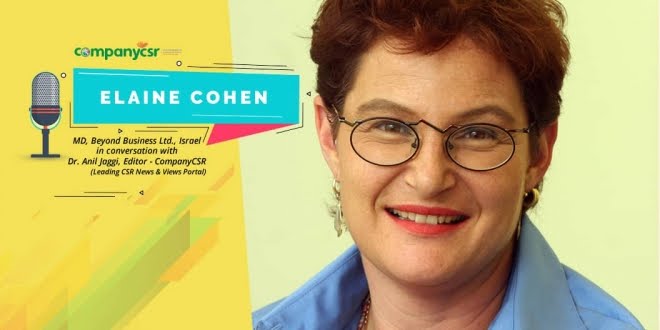
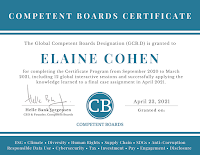


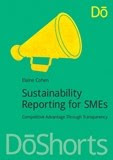
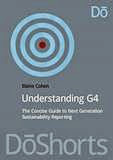
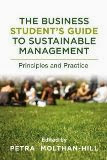
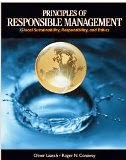
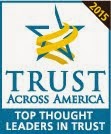










4 comments:
Dear Elaine,
None of my business but I wish you were on LinkedIn, so that I could share your article with my friends there.
Sincerely,
Kumar Ale
(P.S.: I don't work for LinkedIn)
And I wonder whether you were identified as a 'stakeholder' by company xxxxx or sustainability consultancy XXXX
I got the same inquiry as you Elaine. I agree with you that the organizers were after your professional opinions (which they should pay for).
I do think those - your opinions as a professional - are useful to the materiality and stakeholder feedback processes. We are stakeholders as people with an interest in the quality of reporting conducted by companies. The intel companies receive from our feedback is useful to the materiality process, but it does need to come in addition to feedback from other kinds of stakeholders (as you so aptly state).
Thanks for comments. Ian, no idea who identified me as a "stakeholder" and Jen, yes, we agree!
Post a Comment